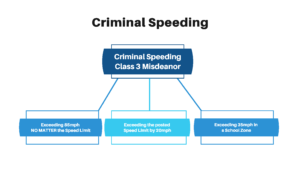How to Become a Criminal Psychologist
Criminal psychology, also known as forensic psychology, involves understanding the thoughts, intentions, and actions of criminals. Criminal psychologists work closely with law enforcement agencies to understand the criminal mind and support investigations. Becoming a criminal psychologist requires extensive education and training but offers a rewarding career helping shape public policy and support law enforcement. If you’re interested in getting into this fascinating field, here’s an outline of the steps to take.
Earn a Bachelor’s Degree
The first step to becoming a criminal psychologist is completing an undergraduate degree. While a bachelor’s degree in psychology may be preferred, a degree in criminal justice or criminology can also provide a solid foundation. Coursework in behavioral science, abnormal psychology, statistics, and research methods is recommended. Gaining volunteer or internship experience in a clinical setting like a psychiatric hospital can also be helpful. The undergraduate years are the best time to get exposure to different psychological theories and research methodologies.
Obtain a Master’s Degree
After earning a bachelor’s degree, the next step is to get a master’s degree in forensic or criminal psychology. Many schools offer graduate programs specific to criminal psychology, which delve deeper into criminal pathology, profiling, and behavioral analysis. Coursework at this level covers topics like:
- Forensic assessment – Evaluating competency, risk, and criminal responsibility
- Psychopathology – Studying mental illness and personality disorders
- Criminal profiling – Analyzing criminal behavior to guide investigations
- Legal psychology – Exploring the interactions between psychology and criminal law
- Correctional psychology – Working with incarcerated individuals
A master’s program typically takes 2-3 years to complete. In addition to coursework, students are required to complete clinical practicums and independent research culminating in a thesis paper. The thesis involves conducting original research in a specialty area of criminal psychology.
Earn a Doctorate Degree
After completing a master’s program, many criminal psychologists go on to obtain a PhD in criminal psychology or forensic psychology. Earning a doctorate allows criminal psychologists to conduct independent research, teach at the university level, and gain eligibility for board certification.
Doctoral programs take an additional 4-6 years, on average. Coursework goes in-depth in areas like psychopathology, psychology and law, psychological assessment, and clinical research methods. Doctoral students also complete advanced clinical practicums, submit a dissertation, and fulfill an internship, often 1 year long at a correctional facility, forensic hospital, or police department.
The dissertation involves extensive original research that adds to the body of knowledge in criminal psychology. Common dissertation topics include developing or validating assessment instruments, evaluating correctional programs, or analyzing criminal behavior and decision-making.
Obtain Licensure
In addition to an advanced degree, criminal psychologists must obtain professional licensure to practice. Each state has its own licensing requirements, but generally candidates must have a doctorate in psychology, pass the Examination for Professional Practice in Psychology (EPPP), and accrue supervised clinical hours.
After meeting eligibility criteria, criminal psychologists can apply for licensure as a psychologist or forensic psychologist in their state. This allows them to conduct psychological evaluations, provide expert testimony in court, create psychological profiles, and professionally counsel victims, offenders, and law enforcement.
Gain Relevant Experience
Hands-on training and experience is a critical supplement to formal education. Here are some ways criminal psychology students can gain valuable applied experience:
- Internships: Complete supervised internships at prisons, jails, forensic hospitals, police departments, victim services agencies, or other settings to apply skills.
- Field research: Assist professors conducting research at correctional facilities, interrogation sites, or criminal courts.
- Clinics: Work at university psychology clinics with a forensic focus under licensed supervisors.
- Conferences: Attend and present research at criminal psychology conferences.
Develop Specialized Skills
Criminal psychologists utilize diverse skillsets to perform their job duties. Here are important skills to develop:
- Criminological theory: Understand biological, psychological, and sociological explanations of criminal behavior.
- Law enforcement collaboration: Build relationships with law enforcement through joint research, training, and outreach.
- Data analysis: Analyze complex criminal datasets using statistical software to identify behavioral patterns.
- Assessment: Administer tests like the Hare PCL-R to assess traits like psychopathy.
- Profiling: Analyze crime scene evidence and criminal behavior to create profiles of unknown offenders.
- Interviewing: Use clinical techniques to gather information from witnesses, victims, informants, and suspects.
- Treatment planning: Develop customized interventions to rehabilitate juvenile and adult offenders.
Find a Mentor
Connecting with an experienced criminal psychologist can provide invaluable guidance. They can offer career advice, collaboration opportunities, letters of recommendation, and help you build your professional network. Reach out to faculty from your graduate program or join professional associations like the American Psychology-Law Society to find mentors.
Pursue Board Certification
Psychologists who want to demonstrate specialized expertise can pursue board certification from the American Board of Professional Psychology (ABPP) in forensic psychology. Applicants must hold a doctorate, state license, have 5 years of experience practicing forensic psychology, and pass a written exam to earn the title of ABPP Diplomate in Forensic Psychology.
Maintain Continuing Education
Criminal psychologists must participate in continuing education to stay current on emerging research and best practices. Many states have mandatory continuing education requirements for licensed psychologists. Conferences, seminars, workshops, and online courses all offer continuing education opportunities.
Explore Career Options
With your advanced training, there are many exciting career paths available as a criminal psychologist:
- Work for law enforcement conducting psychological profiling and assisting investigations.
- Counsel incarcerated individuals and develop rehabilitation plans.
- Analyze crime data and trends to guide public policy and prevention.
- Testify as an expert witness on criminal cases in court.
- Teach and conduct research at a college or university.
- Assess violence risk and criminal responsibility within hospital settings.
- Develop strategies to reduce juvenile delinquency.
Conclusion
Becoming a criminal psychologist takes dedication but opens up amazing opportunities to apply psychology and make a difference in the criminal justice system. With hard work and commitment, you can pursue this rigorous but rewarding career path. Advanced education, hands-on experience, strong research skills, and continuing development will equip you to be an asset to law enforcement and mental health communities. If you’re fascinated by criminal thinking and behavior and want to drive positive change in the legal system, criminal psychology could be the perfect career choice.
FAQs
What undergraduate major is best for criminal psychology?
Psychology, sociology, anthropology, and criminal justice are all good undergraduate majors. Key is taking courses in psychology, statistics, and research methods.
Can I become a criminal psychologist with just a bachelor’s degree?
Most criminal psychologist positions require a master’s or doctorate level education. With just a bachelor’s degree you may be able to find work as a research assistant.
What is the average salary for criminal psychologists?
According to the Bureau of Labor Statistics, the average salary for clinical, counseling, and school psychologists is $87,450 per year. Those working in legal and forensic psychology tend to earn more.
What are some of the job titles in criminal psychology?
Some common job titles are forensic psychologist, investigative psychologist, corrections psychologist, criminology researcher, and criminal profiler.
How competitive is getting into doctoral programs in criminal psychology?
Admission is very competitive – programs often accept just a few applicants out of many qualified candidates. Strong letters of recommendation, research experience, and a clear research focus are key.







